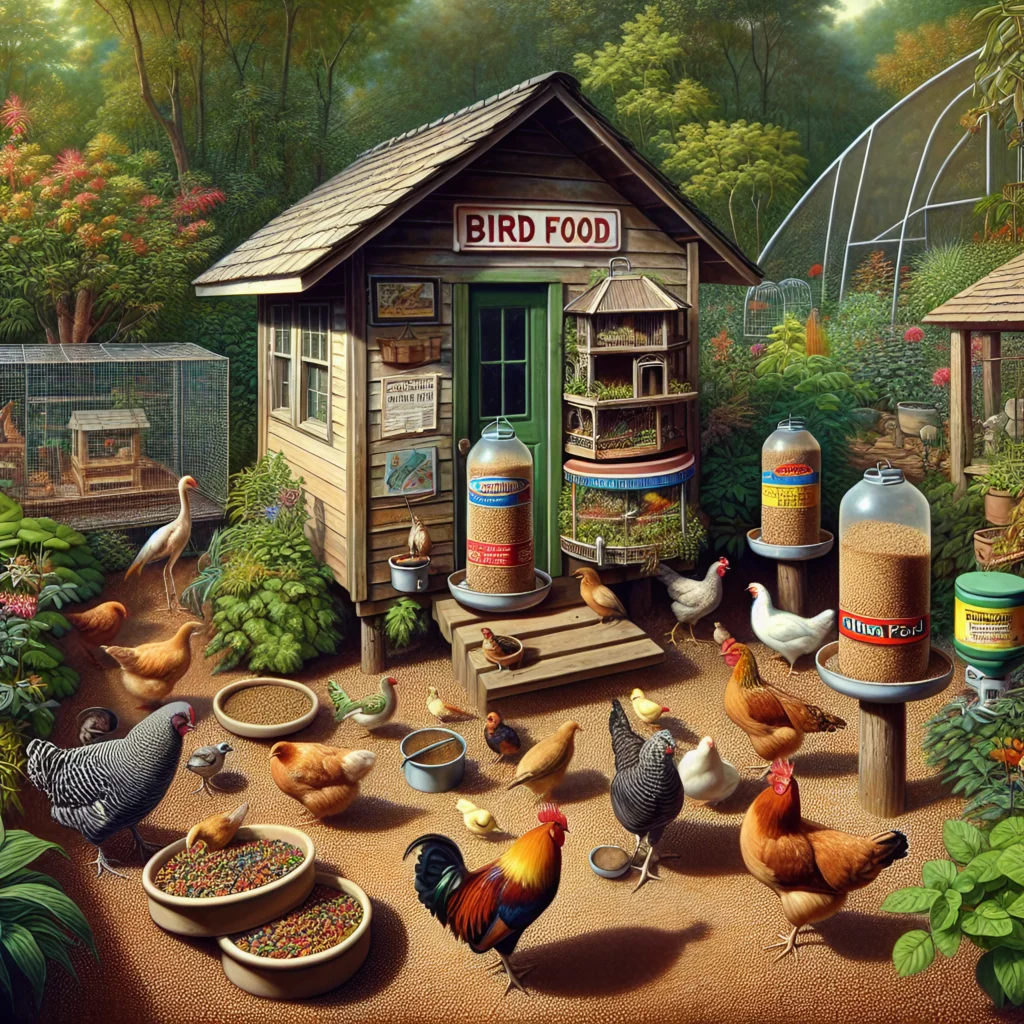Understanding the Difference Between Bird Food and Chicken Feed
Chickens roaming your backyard might seem like they can eat anything, but when it comes to their diet, things get a little more complicated. For pet lovers, backyard chicken owners, and bird enthusiasts, understanding the difference between bird food and chicken feed is essential.
Bird food, often seen in pet stores, is primarily designed for pet birds like parrots and canaries. It is formulated to meet the specific nutritional requirements of these species. Chicken feed, on the other hand, is specially crafted to cater to the dietary needs of chickens, ensuring they stay healthy and productive.
It’s easy to assume that bird food might just be a suitable alternative or supplement for your chickens, but there’s more to consider. Let’s explore if chickens can thrive on bird food or if it’s better to stick to their regular feed.
Can Chickens Eat Bird Food? – Nutritional Analysis

When considering if chickens can eat bird food, understanding the nutritional content is crucial. Bird food is typically rich in seeds, nuts, fruits, and sometimes fortified with added vitamins and minerals. These ingredients are good for pet birds but may not provide everything a chicken needs.
Chickens require a balanced diet with specific amounts of protein, carbohydrates, fats, vitamins, and minerals to maintain their health, lay eggs, and grow feathers. Bird food might lack essential nutrients like amino acids or have excess fats, which could lead to nutritional imbalances.
In some cases, bird food can be given as a treat, but relying on it as a primary food source is not advisable. It’s essential to ensure your chickens get the right nutrients, and bird food might not hit the mark.
Risks of Feeding Bird Food to Chickens
Feeding bird food to chickens isn’t without risks. One significant concern is nutritional deficiency. Chickens that don’t get the right balance of nutrients can face issues like poor egg production, weak bones, and dull feathers.
Another risk is contamination. Bird food might contain ingredients that are safe for parrots but harmful to chickens. Some seeds and nuts can be toxic to chickens, leading to health problems or even death in severe cases.
Additionally, bird food often contains high-fat content, which can result in obesity and related health issues in chickens. This extra fat can affect their egg-laying ability and overall wellbeing.
Alternatives to Bird Food for Chickens
If bird food isn’t ideal for chickens, what are the alternatives? Fortunately, there are plenty of options to ensure your chickens get a balanced diet. Commercial chicken feed is the best choice as it is specifically formulated to meet all their nutritional needs.
You can also supplement their diet with kitchen scraps like vegetables, fruits, and grains. However, it’s important to avoid giving them foods that are toxic to chickens, such as onions and chocolate.
For those looking to provide variety, consider mixing in natural treats like mealworms or small amounts of yogurt. These can be excellent sources of protein and calcium, keeping your flock happy and healthy.
Tips for Safe Feeding Practices
Ensuring your chickens eat safely means following some simple feeding practices. Always provide access to fresh water, as hydration is key to their digestion and overall health.
When introducing new foods, do it gradually. This helps you monitor any adverse reactions and allows their digestive system to adjust.
Lastly, cleanliness is vital. Clean feeding areas regularly to prevent mold and bacteria growth, which can lead to illness. By following these feeding practices, you can protect your chickens from potential risks.
Conclusion – Promoting Healthier Diets for Your Flock
In conclusion, while bird food might seem like a convenient option, it’s not the best choice for your chickens’ primary diet. Chickens and pet birds have different dietary needs, and providing the right nutrition is essential for their health.
By sticking to commercial chicken feed and safe treats, you ensure your flock receives the nutrients they need. Remember to follow safe feeding practices and keep an eye on your chickens’ health and behavior.
For those dedicated to providing the best care for their backyard flock, considering expert advice or resources is always beneficial. With the right diet, your chickens can lead a healthy, productive life, delighting you with their presence and fresh eggs.

